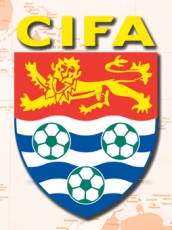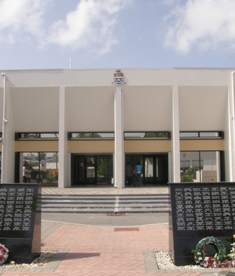Guest Writer
Guest Writer's Latest Posts

Village where half the population are sex offenders
 (BBC): Miracle Village lies deep in a sea of green. This is sugar cane country, south Florida. At the edge of the everglades, and over two miles from the nearest town, around 200 people live in the small, neat bungalows. More than 100 of them are registered sex offenders – people who were found guilty, and have usually served a prison sentence, for a sex crime. There is one woman, the rest are men. Some of them viewed child pornography, or molested their own children. Others abused minors when they were in positions of power – there is a teacher here, a pastor, a sports coach. There are those who have been to prison for exposing themselves. A number of residents were convicted because they had sex with underage girlfriends.
(BBC): Miracle Village lies deep in a sea of green. This is sugar cane country, south Florida. At the edge of the everglades, and over two miles from the nearest town, around 200 people live in the small, neat bungalows. More than 100 of them are registered sex offenders – people who were found guilty, and have usually served a prison sentence, for a sex crime. There is one woman, the rest are men. Some of them viewed child pornography, or molested their own children. Others abused minors when they were in positions of power – there is a teacher here, a pastor, a sports coach. There are those who have been to prison for exposing themselves. A number of residents were convicted because they had sex with underage girlfriends.
Under Florida's state law none of them can live within 1,000 feet of a school, day care centre, park or playground. Cities and counties have extended those restrictions up to 2,500 feet – about half a mile. And in some places swimming pools, bus stops and libraries are out of bounds too. The effect has been to push sex offenders out of densely populated areas.
The laws of Florida have made Miracle Village an attractive option. It was set up in 2009 by the late Dick Witherow, a pastor with Matthew 25 Ministries. He saw thedifficulties sex offenders faced when trying to find a place to live. Although they can travel pretty much anywhere during the day, at night they must be at an address that complies with the residency restrictions.
Applications to Miracle Village from potential residents arrive daily. "We get between 10 and 20 a week", says Jerry Youmans, the intake co-ordinator for the ministry, and also a registered sex offender.
"We try not to accept people with a history of violence or drugs, or to take any diagnosed paedophile – that is, someone who can only become sexually aroused by a child. We want to protect the people who are already here and those who were living here before us."

Religious groups in Kentucky slam science curriculum
 (Huffington Post): Supporters and opponents of the Next Generation Science Standards sparred during hearings in Kentucky last week, as critics took issue with the standards’ teaching of evolution and climate change. The new standards were developed with input from officials in 26 states –- including Kentucky –- and are part of an effort to make science curricula more uniform across the country. While supporters feel the standards will help beat back scientific ignorance, some religious groups take issue because the standards treat evolution as fact and talk about the human role in climate change.
(Huffington Post): Supporters and opponents of the Next Generation Science Standards sparred during hearings in Kentucky last week, as critics took issue with the standards’ teaching of evolution and climate change. The new standards were developed with input from officials in 26 states –- including Kentucky –- and are part of an effort to make science curricula more uniform across the country. While supporters feel the standards will help beat back scientific ignorance, some religious groups take issue because the standards treat evolution as fact and talk about the human role in climate change.
The Kentucky Board of Education adopted the standards in June and held hearings to get public feedback on the standards last week before they were presented to the state legislature for official approval.
Matt Singleton, a Baptist minister, is one of the opponents who spoke to the board about why the standards should not be adopted, according to The Courier-Journal. “Outsiders are telling public school families that we must follow the rich man’s elitist religion of evolution, that we no longer have what the Kentucky Constitution says is the right to worship almighty God,” Singleton said. “Instead, this fascist method teaches that our children are the property of the state.”
Another opponent, Dena Stewart-Gore, suggested that the standards will make religious students feel ostracized. “The way socialism works is it takes anybody that doesn’t fit the mold and discards them,” she said, per the The Courier-Journal. “We are even talking genocide and murder here, folks.”
Supporters of the standards contended that opponents’ fears are unfounded and that the standards’ curriculum is based on evidence.

Cayman lottery
About 10 years ago the government set up a committee to look into the potential of a lottery in Cayman. I was asked to chair the committee. We found that around 15,000 persons were in the 'Numbers' database at the time and in an unofficial poll found that 70% of the public supported having a lottery in the Cayman Islands … about half that amount supported casinos.
Based on information gathered, we estimated that around $700,000 per week was put into the Numbers system in Cayman, with some $200,000 plus returned to players. We found that quite a bit was being spent weekly on the Florida lottery and also online lotteries from around the world. We were also made aware of card, domino, blackjack and such games being played regularly for money.
We estimated conservatively that a legal lottery would begin with around $50 million per year being placed into it and that number would double very shortly afterward, with international players (cruise ship passengers, etc) being added to the mix. Of that, the return directly to government would be $20-30 million per year shorlty after start.
We did receive some negativefeedback from the churches, who we also had discussions with; their biggest concerns seem to be the casinos. Given the size of the 'Numbers database', it is clear that churchgoers were also purchasing Numbers. Of course, a downside to gaming is that folks who can least afford to will spend on a lottery but they do now anyhow.
We looked at lottery systems around the world, from daily/weekly system to online lotteries to lotteries such as "El Gordo", the Spanish lottery which has 4 or so mega-draws each year. We communicated with Camelot, which runs the UK lottery. We proposed to government at the time, based on our research, that the lottery be set up here and run by an independent company licensed by government (similar to Camelot) and that a percentage fee for such a license be paid directly to government.
So … I say all that, to say that lotteries are welcomed (wanted) in the Cayman Islands and that the government can make money from allowing one to be created here. The Numbers game is live and active, so we thought the country should make money from the existing gambling. My gut reaction … it is time to legalise the lottery, folks.
Vote in the CNS Poll: Do you think there should be a legal Cayman lottery?

Arctic methane ‘time bomb’ could have huge costs
 (BBC): Scientists say that the release of large amounts of methane from thawing permafrost in the Arctic could have huge economic impacts for the world. The researchers estimate that the climate effects of the release of this gas could cost $60 trillion (£39 trillion), roughly the size of the global economy in 2012. The impacts are most likely to be felt in developing countries they say. Scientists have had concerns about the impact of rising temperatures on permafrost for many years. Large amounts of methaneare concentrated in the frozen Arctic tundra but are also found as semi-solid gas hydrates under the sea.
(BBC): Scientists say that the release of large amounts of methane from thawing permafrost in the Arctic could have huge economic impacts for the world. The researchers estimate that the climate effects of the release of this gas could cost $60 trillion (£39 trillion), roughly the size of the global economy in 2012. The impacts are most likely to be felt in developing countries they say. Scientists have had concerns about the impact of rising temperatures on permafrost for many years. Large amounts of methaneare concentrated in the frozen Arctic tundra but are also found as semi-solid gas hydrates under the sea.
Previous work has shown that the diminishing ice cover in the East Siberian sea is allowing the waters to warm and the methane to leach out. Scientists have found plumes of the gas up to a kilometre in diameter rising from these waters.
In this study, the researchers have attempted to put an economic price on the climate damage that these emissions of methane could cause. Methane is a powerful greenhouse gas, even though it lasts less than a decade in the atmosphere.

Dolphins ‘call each other by name’
 (BBC): Scientists have found further evidence that dolphins call each other by "name". Research hasrevealed that the marine mammals use a unique whistle to identify each other.A team from the University of St Andrews in Scotland found that when the animals hear their own call played back to them, they respond. It had been-long suspected that dolphins use distinctive whistles in much the same way that humans use names. Previous research found that these calls were used frequently, and dolphins in the same groups were able to learn and copy the unusual sounds. But this is the first time that the animals response to being addressed by their "name" has been studied.
(BBC): Scientists have found further evidence that dolphins call each other by "name". Research hasrevealed that the marine mammals use a unique whistle to identify each other.A team from the University of St Andrews in Scotland found that when the animals hear their own call played back to them, they respond. It had been-long suspected that dolphins use distinctive whistles in much the same way that humans use names. Previous research found that these calls were used frequently, and dolphins in the same groups were able to learn and copy the unusual sounds. But this is the first time that the animals response to being addressed by their "name" has been studied.

Asafa Powell among five Jamaicans to test positive
 (Yahoo!): Former 100m world record holder Asafa Powell is among five Jamaican athletes to have tested positive for taking banned substances. Powell tested positive for a stimulant at last month's national championships, his agent told Reuters on Sunday. Powell, who has never won an individual global sprint title, held the 100m world record between 2005 and 2008 when his then-best of 9.74 seconds was broken by current record holder and fellow-Jamaican Usain Bolt. In a statement, Powell said: "I will confirm that a sample I gave at the national trials in June earlier this year has returned 'adverse findings'.
(Yahoo!): Former 100m world record holder Asafa Powell is among five Jamaican athletes to have tested positive for taking banned substances. Powell tested positive for a stimulant at last month's national championships, his agent told Reuters on Sunday. Powell, who has never won an individual global sprint title, held the 100m world record between 2005 and 2008 when his then-best of 9.74 seconds was broken by current record holder and fellow-Jamaican Usain Bolt. In a statement, Powell said: "I will confirm that a sample I gave at the national trials in June earlier this year has returned 'adverse findings'.
The substance oxilofrine (methylsynephrine) was found, which is considered by the authorities to be a banned stimulant.
"I want to be clear in saying to my family, friends and most of all my fans worldwide that I have never knowingly or wilfully taken any supplements or substances that break any rules. I am not now – nor have I ever been – a cheat," he added. "This result has left me completely devastated in many respects. Professionally, this finding fully negates any possibility of me being a part of Jamaica's contingent of athletes competing at (the) world championships in Moscow later this summer."
Olympic 4x100m relay silver medallist Sherone Simpson said on Sunday she had tested positive for a stimulant at last month's national championships. Simpson, 28, was a member of the Jamaican team that finished second in the 4×100 relay at last year's London Olympics. She finished equal second in the 100 metres at the 2008 Beijing Games and won a gold medal in the 4×100 relay four years earlier in Athens.
"This is a very difficult time for me," Simpson said in a statement to Reuters. "I was notified on July 14, 2013 that my urine sample taken at the National Senior Championship, June 21, 2013 after the 100m finals returned a positive analytical finding for a stimulant, oxilofrine (methylsynephrine). "As an athlete, I know I am responsible for whatever that goes into my body. I would not intentionally take an illegal substance of any form into my system."
The sources said two of the athletes were sprinters while three competed in field events. They said one of the athletes was a junior.
Jamaican Anti-Doping Commission chairman Herb Elliott confirmed the body had received "reports of adverse analytical findings from "A" samples".
"The process of the result management has commenced in accordance with the JADCO Anti-doping rules," he told Reuters. "We cannot disclose any further information until the athletes have responded to notification of the "A" sample."
The managers for Bolt and world 100m champion Yohan Blake said their athletes were not involved. Blake did not compete at the championships because of injury while Bolt won the 100m.
Last month Jamaica's most successful female athlete Veronica Campbell-Brown tested positive for a diuretic, which can be used to mask the use of performance-enhancing drugs. The twice Olympic 200m champion has been suspended by the Jamaican Athletics Administrative Association pending the outcome of a disciplinary panel hearing.

Public Management and Finance Law
I closely followed the implementation of the the Public Management and Finance Law. I'm also familiar with what happened in New Zealand specifically and the push for a "Whole-of-Government" approach or "Reintegration of Government" on the heels of "New Public Management". NPM can potentially work in certain situations, but not here in Cayman.
Both the Cayman Islands Public Management and Finance Law (PFML) and Public Service Management Law (PSML) were based largely on similar laws in New Zealand and are part of what is referred to as "New Public Management" (NPM) reforms (the "new" is a bit outdated at this point, as the movement began in the early 80's and that term was coined in the early '90s, but the name stuck).
New Zealand was an early and enthusiastic adopter of NPM reforms, and to quote a speech by the Financial Secretary in May 2005 (linked below): "When we began this process there was very little experience within the Caribbean region for us to draw upon. We therefore looked at experiences elsewhere in the world – particularly the financial management approach adopted in New Zealand. From that we developed our own reform design – which we called the “Cayman Model”.
The Miller Shaw Report also notes: "Our attention has been drawn to a comparison with New Zealand in part because the Government‘s finance department studied that country‘s financial management reforms, and the Principles of Responsible Financial Management incorporated into Cayman law are based on their experience and systems."
Wikipedia sums up the ideas behind NPM quite well: "Some modern authors define NPM as a combination of splitting large bureaucraciesinto smaller, more fragmented ones, competition between different public agencies, and between public agencies and private firms and incentivization on more economic lines. […] A 2003 [OECD] paper described the characteristics of the new public management as decentralization, management by objectives, contracting out, competition within government and consumer orientation."
This is what we did here in Cayman, with the creation of many "new" units, agencies and statutory authorities to achieve specialisation in the delivery of goods and services that had previously been done at the department/ministry level; contracting out; strict rules for tendering; identifying "outputs" that are "purchased" in order to draw down funds that are budgeted; decentralising finance and accounting; decentralising human resources functions; introducing more competition in the hiring processes by requiring open recruitment for every post (with very few exceptions, so now many posts are advertised even if they would have previously been considered promotions in line with succession plans, and many "advertisements" are not truly open because the post is already designated for a specific persion — not unlike some work permit advertisements …); introducing performance management; etc.
By adding new measures meant to promote efficiency and effectiveness, the size of the public service did, in fact, increase. By quite a lot. The creation of new agencies and decentralisation of finance and HR required many additional personnel. Not all of the 800 persons who were added to the civil service (most in the 2005-2008 time period) were a result of these changes, but the vast majority of them were.
New Zealand abandoned those reforms just as we were taking them up in the mid-2000's.
To quote a scholar who has studied New Zealand through NPM and beyond: "Public sector reform has persisted for a sufficient length of time in several countries to examine patterns over the longer term. Australia and New Zealand are both early and long-term reforming countries that display distinctive features as well as being Anglophone countries identified with new public management. As third generation reformers, the products of more than two decades of reform activity are becoming clearer: the starker manifestations of new public management have less prominence now and a set of distinctive trends has emerged with commonalities across the two countries. The synthesis of elements in the third generation suggests that system integration and performance are central to the prevailing approach and that an emergent model is best represented in the mid-2000s as integrating governance."
Another scholar on the same subject: "In the recent generation of modern public sector reforms — those following two decades of New Public Management (NPM) reforms — there has been achange in emphasis away from structural devolution, disaggregation, and single-purpose organizations and toward a whole-of-government (WG) approach. This trend is most evident in the Anglo-Saxon countries, such as the United Kingdom, Australia, and New Zealand, once seen as the trailblazers of NPM, but it is also occurring in other countries, such as the United States, under the heading of collaborative public management."
The fact is, our Government did not have much in common with the governments that explored NPM in the 80's and 90's. And we have stubbornly stuck with it despite being, really, the last bastion. It sounds great on paper, but it just doesn't work.
We need to have the courage to say we tried it, it didn't work in practice (and not just because our finance persons are not capable — though, to be frank, many are not), and we're going to change while still committing to the same objectives of efficiency, effectiveness, transparency and accountability. I think the Hon Deputy Governor has the right motivations, but I disagree with himon the future of these two laws.

CIFA calls for volunteers
 (CIFA): Having confirmed its hosting of the CONCACAF Under 15 Boys’ Development Tournament in Grand Cayman from August 13 – 25, in association with the Confederation of North, Central American and Caribbean Association Football (CONCACAF), the Cayman Islands Football Association (CIFA) has issued a call for members of the Cayman community to join its team of CIFA Ambassadors to provide tournament competitors and officials a taste of Cayman’s hospitality. “We are very excited to show members of some 24 teams, CONCACAF officials and football fans around the world the first class hospitality the people of Cayman can offer to them … but we can’t do this alone.” said Bruce Blake, Chairman of the Local Organizing Committee.
(CIFA): Having confirmed its hosting of the CONCACAF Under 15 Boys’ Development Tournament in Grand Cayman from August 13 – 25, in association with the Confederation of North, Central American and Caribbean Association Football (CONCACAF), the Cayman Islands Football Association (CIFA) has issued a call for members of the Cayman community to join its team of CIFA Ambassadors to provide tournament competitors and officials a taste of Cayman’s hospitality. “We are very excited to show members of some 24 teams, CONCACAF officials and football fans around the world the first class hospitality the people of Cayman can offer to them … but we can’t do this alone.” said Bruce Blake, Chairman of the Local Organizing Committee.
“One of the ways in which we hope to build our pool of Ambassadors is to invite employers within our business community, heads of government departments and agencies to encourage their staff to volunteer their time and services to make this a successful event. Support is needed as liaison officers, sales clerks, administrative assistants, hosts and hostesses, translators, medical personnel … the list is almost endless.” continued Blake who sees the long-term benefit to the entire Cayman community of hosting such events.
From a sports tourism standpoint, the benefits of having some 600 people come to our Island for such a tournament are significant.
Persons interested in and /or requiring more information on becoming a CIFA Ambassador should email the LOC at volunteers.cifa@gmail.com

Attempted murder suspect sacks another lawyer
 (CNS): The 41-year-old man charged with the attempted murder of Wesley Clarke in the early hours of June last year has released yet another defense attorney provided to him by legal aid. Garry Hurlston requested last week that his defense counsel be taken off record, and despite being set to face a retrial in a matter of weeks, he still does not have a lawyer, The court has advised Hurlston that this will be the last legal representation he will be able to gain through the legal aid system or he will have to find his own resources to fund his representation. Hurlston rose from his seat in the dock to explain that he wants this matter "disposed of as soon as possible" and that he may be seeking to represent himself with the advice of his initial lawyer, John Furniss, throughout the judge-alone trial.
(CNS): The 41-year-old man charged with the attempted murder of Wesley Clarke in the early hours of June last year has released yet another defense attorney provided to him by legal aid. Garry Hurlston requested last week that his defense counsel be taken off record, and despite being set to face a retrial in a matter of weeks, he still does not have a lawyer, The court has advised Hurlston that this will be the last legal representation he will be able to gain through the legal aid system or he will have to find his own resources to fund his representation. Hurlston rose from his seat in the dock to explain that he wants this matter "disposed of as soon as possible" and that he may be seeking to represent himself with the advice of his initial lawyer, John Furniss, throughout the judge-alone trial.
The defendant began a trial earlier in April, when he was represented by Furniss, but partway through the case was adjourned when Hurlston sacked him. His case is now due to return before a judge on 15 July but Hurlston's representation now remains unclear after he also sacked Michael Wingrave.
The defendant has had several legal battles throughout this case due to trial conflicts and personal disagreements with his many attorneys. However, he told the court that he remains as eager as ever to conclude the case as he is the father of five children and a self-employed mechanic. He was remanded into custody following the dismissal of his attorney.
Hurlston is accused of stabbing Clarke in the neck during an altercation at a party in the Windsor Park area at approximately 3am on 21 June last year. Although Hurlston has denied ever stabbing the victim, a witness at the scene told the court that Clarke was his friend and that he had seen Clarke arguing with the defendant immediately before he grabbed his neck and shouted, "They killed me!"
The victim was taken to the hospital immediately following the incident and slipped into a coma. Clarke has been in an unresponsive state connected to a life support machine ever since and it is reported that he did not name his assailant before he lost consciousness.

2013 Constitution Day Message
On 4 July, 1959 the concept of constitutional development began in the Cayman Islands after Caymanian Assemblymen petitioned the United Kingdom resulting in the issuance of a Royal Order-in-Council. After several revisions, the major one in 1972, the Cayman Islands Constitution Order 2009 came into force on 6 November, 2009 following Cayman’s first national referendum.
Often referred to as the highest law in the land, the impact of the Constitution on our daily lives cannot be overstated. The concept of the document is that democracy is the cornerstone of our country. As a country which has a rich heritage of friendliness, generosity and resilience the Constitution only reaffirms our desire as a nation to live and work in an environment which respects each other’s values and rights.
Providing a foundation for our people and a framework for our government, the 2009 Constitution has brought positive changes to how the country is run by creating a more balanced style of governance through increased consultation and accountability at a local level. It provides the people with greater protection for our rights and freedoms and greater authority to defend those rights and freedoms. It envisages that all of us have a responsibility to embrace and defend our differences.
The Constitutional Commission is a three-person body which seeks to advise the Government on questions concerning constitutional status and development in the Cayman Islands; to publish reports, discussion papers, information papers and other documents on constitutional matters affecting the Cayman Islands; and to promote understanding and awareness of the Constitution and its values.
As we continue to work towards fulfilling our constitutional mandate the Commission will, in the near future, be commencing a round of public consultation to solicit input and comment from the people on areas of the Constitution in respect of which persons have questions, thoughts, concerns or require clarification. While a wholesale constitutional review is unwarranted and undesirable so soon after its coming into force, there can be little doubt that there are several sections of the Constitution that do need review and amendment particularly in the context of issues surrounding our recent general elections, many of which have been the subject matter of spirited public debate. Our Constitution can only serve us well if it is clear and concise and as free of ambiguity and uncertainty as one can reasonably make it to be.
On 1 July, 2013 let us not only celebrate the day as a public holiday, but let us instead each take this opportunity to tell another what this day really means for the Cayman Islands. Let us all take a moment to remind ourselves that today is the day in which we celebrate our heritage and the freedoms we have been blessed with because of the work of our forefathers to create this democratic nation underpinned by a Constitution that truly reflects the needs, aspirations and desires of our people..
You may contact the Constitutional Commission by e-mailing info@knowyourconstitution.ky or calling 244-3685.
Remember it’s YOUR Constitution! Embrace it!
